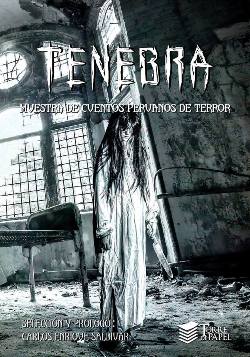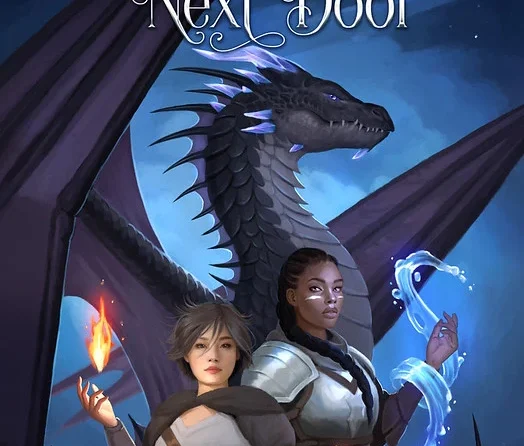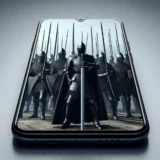 Paperback: 320 pages
Paperback: 320 pages- Publisher: Paragraph Line Books (August 26, 2014)
- Language: English
- Kindle $2.99
- Paperback $10.75
When I was a kid, I was schooled in the ABCs of science fiction (Asimov, Bradbury and Clarke). I branched out in many fruitful ways with east European science fiction (Zamiatin and Lem, to name two) and the weird (Harlan Ellison’s Strange Visions and Michael Moorcock’s Cornelius Chronicles, for example). Eventually, I burnt out on the genre, and stopped reading it for over a decade.
What brought me back to science fiction was the work of cyberpunk writers such as Rudy Rucker, Bruce Sterling and, yes, William Gibson. The near-future stories that dominated the sub-genre featured technological advances that were actually being developed as I read, which gave them an immediacy that much older sci fi didn’t have for me. It helped that they were often breathtaking adventures written in creative prose.
That was around 30 years ago (Gibson’s Neuromancer was published in 1984, although I didn’t start reading cyberpunk until the early 90s). If it ever was a literary movement (Sterling has argued that it wasn’t a movement so much as several authors responding to the same environment independently), a case can be made that its best days are now behind it.
Jon Konrath’s The Memory Hunter is Exhibit A.
Konrath has built an interesting world, an alternate 2007 where Ronald Reagan started a nuclear war with Russia in his third term, nearly wiping out the human race. The world was repopulated by genetic clones grown to adulthood and given memories of youth; it is now run by four massive Japanese corporations. Tech in this world is a mixture of the modern (computers and digital networks) and 1950s dream machines (hovercars and laser blasters). So far, so good.
The problems begin with the conception of the main character, Bishop. His job is to track down people who have had memory implants on which they cannot keep up the payments and destroy the partition that allows them to access that information. Why? Surely, since they involved digital implants, it would have been easier and cheaper to destroy the partitions by sending a command directly to the suspect’s brains through a wireless network. (I cannot be sure about this because Konrath doesn’t explain the mechanics of the memory implants in detail; sometimes they seem digital, sometimes they seem analogue, just an addition to our physical brains. Even if I am wrong on this point, though, the fact that there is this confusion is a problem in itself.)
Of course, this would have derailed the plot at its base, so it couldn’t have been. Still, Konrath should have at least addressed the issue. (And it would have been easy enough: explain that the networked recalls tended to destroy the minds of the people who were subjected to them, which caused a lot of negative press for the corporations that made them, so they voluntarily chose to have the recalls done manually instead.)
In addition, Bishop is described in the first half of the book as being somewhat shy in his dealings with his female love interest, Amy. He frets about how he should approach her and what lines would be the most effective in gaining her interest. On the one hand, I can understand that this is a way to make Bishop more interesting than the standard action adventure hero. Unfortunately, it isn’t integrated well with the action where Bishop is the standard action adventure hero. Worse, in the second half of the book, Bishop has completely lost the affectation, bantering with Amy in a Bond, James Bondian way that is at odds with his earlier behaviour.
If Konrath had been a little more careful about Bishop’s transition between the two states, he may have been able to make it work. In fact, this is something of a missed opportunity: Bishop was once a hotshot corporate memory hunter; when he earned the wrath of his bosses, his mind was reshaped to make him much less effective. This hesitancy could have been programmed into him at that time; his attempts to overcome that programming could have been central to the plot of the book.
There was an even worse missed possibility: towards the end of the novel, we find that Bishop has IDES, a disease that randomly affects people’s implants, giving them the physical shakes and an increasingly wonky memory. There is very little evidence earlier in the book that he has the condition, though, which is just poor characterization. The missed opportunity is the possibility of a detective trying to piece together a case who cannot trust himself to remember what is really important. Is he asking the right questions? Has he already asked those questions and been given the answers? Is he following a fantastic lead, or did he already discover it was a dead end? This is Phillip K. Dick territory. However, it isn’t The Memory Hunter.
Towards the end of the novel, Bishop’s character takes a darker turn. A hovercar chase ends when the hero tricks the villain into ramming a bus with innocent civilians; Konrath makes a point of describing their startled faces just before impact. This is a heartless act that makes Bishop seem like a monster. Not only does it seem like a complete break with what we had seen of him, but it completely alienates the reader because we really wanted to like him as a hero. (If Konrath had made him an anti-hero from the beginning, the reader would have had a much different relationship with the character.)
Given all of the above, I don’t feel generous enough to ignore picky details, such as the book’s inconsistent use of apostrophes. Is it “’net” or “The Net”? Konrath is consistent in having it both ways, but that’s just confusing. Again: “droid” or “’droid?” Both are used fairly regularly. In addition, Konrath uses an open single quote when the quotation mark used to denote missing letters is a closed single quote (don’t write don‘t).
To be fair, Konrath can be a funny writer. A battle in a gift shop late in the novel, for example, was droll, and nicely satirical. There’s a scene with laugh out loud funny dialogue earlier in the novel. However, the humour is infrequent and random, sticking out rather than being well integrated with the more serious elements of the plot. And, as is par for this type of writing, there are some sly references to other science fiction works. “With the click of a red button, the Ludovico specula pried open the man’s eyelids.” was a reference to Anthony Burgess’ A Clockwork Orange, for instance. They’re always fun.
Unfortunately, clever writing cannot make up for fundamental problems with characterization and plot. Fans of cyberpunk should return to the masters of the sub-genre and give The Memory Hunter a pass.

 Paperback: 320 pages
Paperback: 320 pages







A totally understandable error and certainly not worth losing sleep over. 🙂
Absolutely right. This is what happens when you start writing a review late at night. Thanks, Dave, for the correction.
The reviewer cites Harlan Ellison’s _Strange_ Visions. Actually, it was _Dangerous_ Visions.